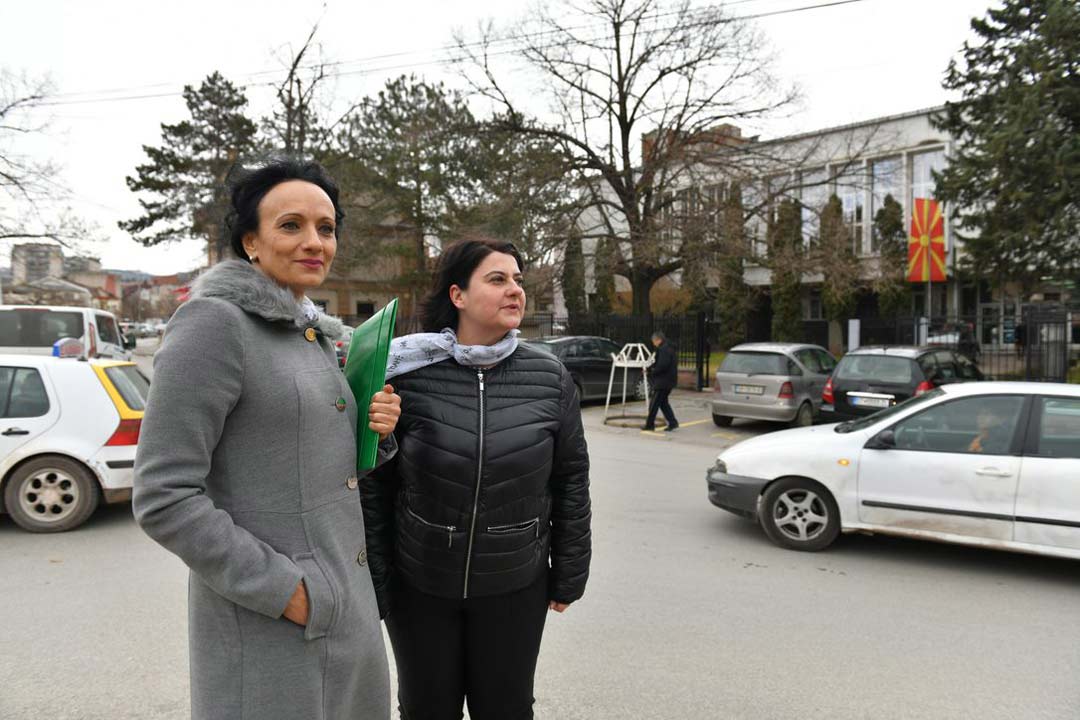“I don’t give up that easily”
It might take years, but women human rights defenders Beti Peeva and Blagica Kirov know it can be done: every woman has the right to a life free from violence.

The office is situated a couple of floors up in a draughty block of flats. Through a broken window along the staircase, freezing February air blows in. But stepping inside the headquarters of the women’s rights organisation Educational Humanitarian Organisation (EcHO) is like entering a warm haven.
Here, three women experts offer support to abused women and girls. Blagica Kirov is one of them. Almost ten years have passed since EcHO advertised it was looking for a full-time lawyer to provide legal advice to survivors of domestic violence. That’s when Blagica faced the difficult choice of whether or not to leave her job as a lawyer at a private law firm.
“I knew this was what I really wanted to do,” she recalls.
“Blagica should get credit for the large number of cases we’re able to handle,” president Beti Peeva chips in.
“If I deserve any kind of credit, it’s for not giving up so easily,” Blagica responds with a cheeky smile.
A life free from violence
In 2019 alone, EcHO took more than 60 cases of violence against women to court. The process is often a lengthy, drawn-out one. Helping a woman leave an abusive situation can take years. It takes grit.
Blagica still remembers many of the survivors she’s worked with throughout the years. When things get tough, she focuses on those successes—thinking of all the women who now lead lives free from violence.
“Every woman has the power to escape abuse. Even those whose situation seems particularly dark and hopeless: it’s still possible for them to get out,” Blagica says.
Changing public opinion
EcHO is one of The Kvinna till Kvinna Foundation’s partner organisations in North Macedonia, a country characterised by traditional and stereotypical values, where many consider domestic violence a private matter.
It’s also one of the few organisations that offer holistic support to survivors in the form of legal advice, psychological counselling and courses to help women become financially independent. And EcHO is determined to change the very foundations of Macedonian society.
“We always try to cooperate with the social institutions women turn to [when they’re facing violence]. These institutions need a certain gender awareness and empathy to understand what someone exposed to violence is actually going through. Only then will they be able to make decisions that will benefit both the women in question as well as society as a whole. Only then will they be able to break the chain of violence,” Beti explains.
“Who I am”
As EcHO’s president, Beti feels the weight and responsibility that come with the work she does. Her commitment runs deep: “Regardless of all the obstacles we encounter in society, we do our best. I personally do my best because this organisation…well, sometimes I think this organisation is my whole life. It is me, it’s who I am.”
Kvinna till Kvinna has worked for women’s rights in North Macedonia since 1999. We support and work with several local women’s rights organisations to end gender-based violence and defend women’s rights.
Learn more about our work in North Macedonia